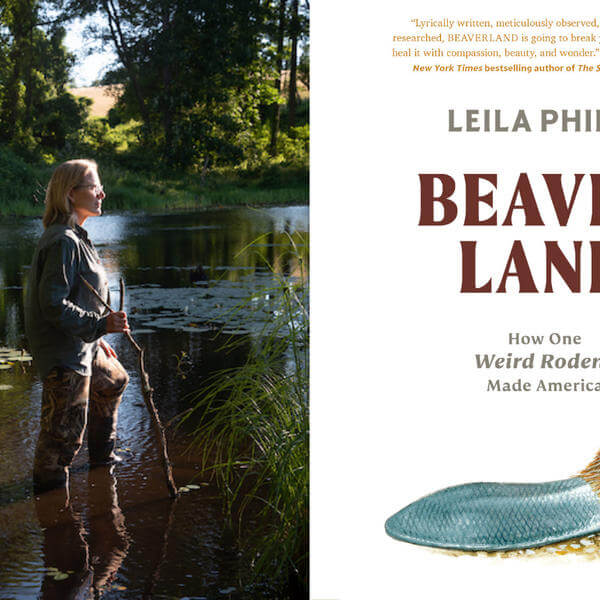Leila Philip, professor of English and environmental studies at the College of the Holy Cross, has authored a new book called “Beaverland: How One Weird Rodent Made America.” Scheduled for release on Dec. 6, the book has already received enthusiastic reviews from media around the globe, from The New York Times to The Globe and Mail and The Wall Street Journal.
"Beaverland" is an immersive ecological and historical investigation of the beaver that traces the critical ways it has shaped everything from American imperialism and wealth to the current debates surrounding the environmental crisis.
“‘Beaverland’ itself is as full of charm and wonder as its beguiling protagonist,'' writes The Wall Street Journal. “The book’s ultimate — and unanswered — question is whether this continent’s two engineering species [beavers and humans] can coexist with each other. For its own good, the one with the excavators had better learn how to share its space.”
Philip’s investigation of the beaver was funded through a rapid response story grant by the Society for Environmental Journalism, an organization founded in 1990 to support journalists who cover complex environmental issues.
A member of the Holy Cross faculty since 2003, Philip is an award-winning writer of literary nonfiction, as well as a Guggenheim fellow. She is the author of four books, including “The Road Through Miyama,” for which she received the prestigious PEN Martha Albrand Special Citation for Nonfiction, and the award-winning memoir “A Family Place: A Hudson Valley Farm, Three Centuries, Five Wars, One Family.”
Related Coverage:
- Scientific American, Dec. 2
- The Wall Street Journal, Dec. 2
- The Globe and Mail, Dec. 2
- Newstalk 1010 Canada, Dec. 5
- WAMC/Northeast Public Radio, Dec. 7
- The Boston Globe, Dec. 12
- The Wall Street Journal, Dec. 15
- The New York Times, Dec. 20


